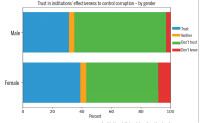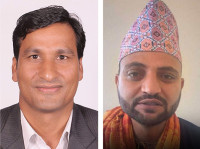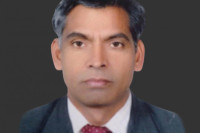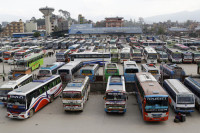National
BP Koirala Institute of Health Sciences starts its own pharmacy
In the absence of a government-run pharmacy patients had to buy medicines at a higher prices from private drugstores.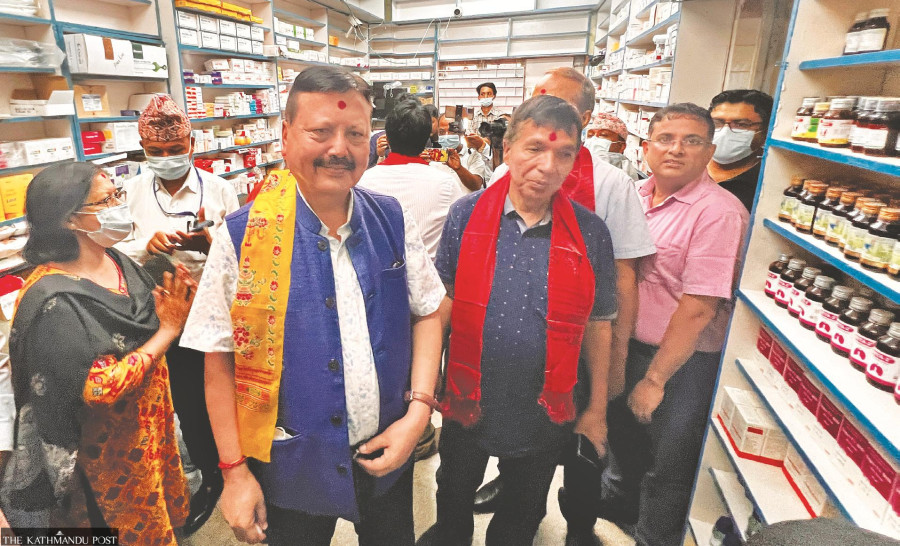
Pradip Menyangbo
BP Koirala Institute of Health Sciences in Dharan on Wednesday started the operation of its own pharmacy, the first for one of the biggest government hospitals in Nepal.
In 2015, the government had directed all government hospitals to run their own pharmacy but in the absence of financial support from the government, the hospital had been without a pharmacy.
The absence of a government-run pharmacy meant the patients had to buy medicines at a higher price from private pharmacies outside the hospital.
“The 2015 government directive came about to make patients’ access to medicines easy and affordable. If only the hospital had been able to operate its own pharmacy earlier, then it would have helped a lot of patients,” said Dr Gyanendra Giri, vice-chancellor of the institute, while inaugurating the pharmacy.
According to Laxman Maharjan, in charge of the pharmacy department of the institution, since the government has provided Rs2 million as seed money, it has become easier to run the pharmacy.
“We will be purchasing medicines worth Rs40 million to be sold to patients coming to the hospital,” said Maharjan. “We will soon release a tender for the supply of medicines. In the first phase, pharmacy services will be extended to obstetrics and gynaecology, surgery, emergency and OPD as well.”
Maharjan also said that 90 percent of the medicines prescribed by the doctors of the hospital to any patient will be available at cheaper and affordable prices through the pharmacy. According to the Public Procurement Act, pharmacies in government hospitals cannot keep more than 16 percent margin on any medicine for the benefit of the patients.
Dr Gyanendra Giri, vice-chancellor of the institute, said that at present, on average medicines worth Rs 1 million are being purchased daily by the patients visiting the hospital. “If the newly-opened pharmacy operates systematically then the sale of medicines can shoot up to Rs9 million per day. The goal is to reach the number by 2023,” he said.
Earlier, the then vice-chancellor Rajkumar Rauniyar also tried to bring the pharmacy into operation at two places within the institution. But the plan did not take off.
According to Dr Jagat Narayan Prasad, the hospital director, pharmacy services will soon be expanded to dental colleges, orthopaedics, et cetera. About 5,000 types of medicine will be available in the pharmacy. The construction of a bigger pharmacy building at the cost of Rs130 million will be completed in December making service easier, said Prasad.
“In order to stem outside forces such as brokers and agents from making a profit off patients, it was imperative for the hospital to run its own pharmacy,” said Prasad. “Delivering medicines to those admitted for treatment to their hospital bed without an extra penny charged will be beneficial to everyone.”
The hospital, with a capacity of 850 general and 250 emergency beds, is visited by nearly 4,000 patients on a daily basis, officials at the hospital said. Nearly 80 surgeries are carried out in the hospital in 24 hours.




 13.89°C Kathmandu
13.89°C Kathmandu
